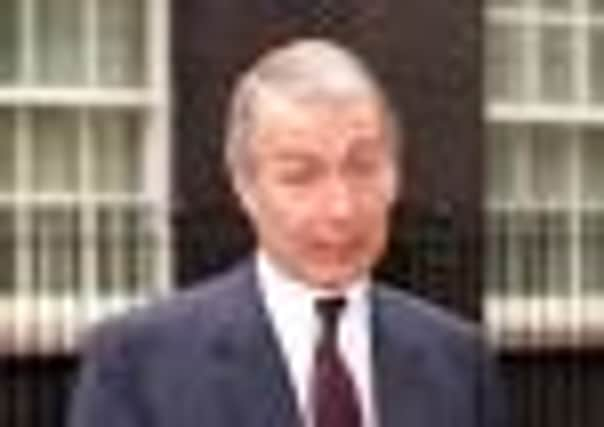Independent Scotland to face ‘pension timebomb’


The difficulty of funding pensions for a Scottish population ageing faster than elsewhere in the UK will be identified by the Lords Economic Affairs Committee as a key challenge to overcome in the event of a Yes vote next year.
The rocketing welfare bill an independent Scotland faces is just one of the issues that will be raised by the committee when it publishes its report into the “Economic Implications for the UK of Scottish Independence” on Wednesday.
Advertisement
Hide AdAdvertisement
Hide AdThe potential loss of shipbuilding jobs post-independence and business fears about currency arrangements will also be raised by the report, which will try to resist endorsing either side of the Yes/No argument.
The committee, which is chaired by the former Conservative minister Lord MacGregor and includes the former Chancellor Lord Lawson, will also look at the controversial division of national debt following a Yes vote in 2014.
Concern over the rising cost of pensions has led to experts claiming that taxes would have to rise should Scotland decide to split from the UK. Ahead of the report’s publication, the UK government’s poverty tsar Frank Field has also warned that an independent Scotland would face an “unaffordable” welfare and pensions bill.
In an interview with Scotland on Sunday, Field claimed said an independent Scotland would have to increase the proportion of GDP spent on welfare from the current level of 14.4 per cent to around half, a rise that would inevitably lead to a hike in taxes.
“An independent Scotland is going to have the same problem as the UK. How do we pay for welfare? We are facing at least a decade of cuts and for Scotland it could be even worse,” Field said.
The Labour MP, who was controversially handed the poverty tsar role by Prime Minister David Cameron, added: “An independent Scotland would have the powers, but where would the money come from? It would mean more tax increases.”
Similar concerns will be raised in the Lords report. Figures provided by the Chief Secretary to the Treasury Danny Alexander show that in the UK as a whole, there are currently 25.8 people over the age of 65 per 100 working people. By 2060 the proportion of pensioners in Scotland will have increased to 51.71 compared with just 45.9 for the rest of the UK.
North Sea oil revenues – a key plank in the case for Scottish independence – are also examined in the Lords committee’s report which looks at all economic aspects of a Scottish Yes vote.
Advertisement
Hide AdAdvertisement
Hide AdThe report will estimate that the oil industry could provide Scotland with between £5 billion and £10 billion in tax revenue per year over the next decade – a sum that looks less optimistic than the Scottish Government’s forecast for a £57bn tax take over the next five years.
It will also call for the swift establishment of the North Sea boundary to determine how much of the continental shelf an independent Scotland would be entitled to in an attempt to calm investors.
Yesterday, MacGregor confirmed that the report would highlight the concerns of the business community. He said: “There were members of the business community who had difficulties [with independence]. What they wanted were answers – for example the currency question, which affects a lot of the big Scottish companies that are international.”
Field also criticised Alex Salmond’s pledge to a “transformational shift” towards a Scandinavian-style system of family childcare in Scotland.
At the SNP conference last month, the First Minister pledged that independence could deliver improved childcare with the new Scottish state meeting up to 85 per cent of parents’ costs.
“The problem is wanting Scandinavian services but not wanting to have Scandinavian tax levels,” said Field, who also argued that the bill could not be met by relying on Scotland’s offshore energy industry.
On welfare, the Scottish Government said Scottish pensions and welfare costs in 2011/12 were equal to 14.4 per cent of Scotland’s GDP compared with 15.9 per cent for the UK.
Deputy First Minister Nicola Sturgeon’s spokeswoman said: “Frank Field is misinformed. The truth is that cuts to welfare and pensions are happening right now under the Westminster system.”
Advertisement
Hide AdAdvertisement
Hide AdShe added: “Pensions and welfare costs have been lower as a share of Scotland’s economy than they have in the UK in each of the last five years. With access to all of Scotland’s resources and the full responsibility for economic growth that comes with independence, Scotland will be able to invest in a welfare system that supports people in their old age, helps families with childcare and increases equality, rather than one which reduces taxes for the wealthy whilst cutting support for the vulnerable.”